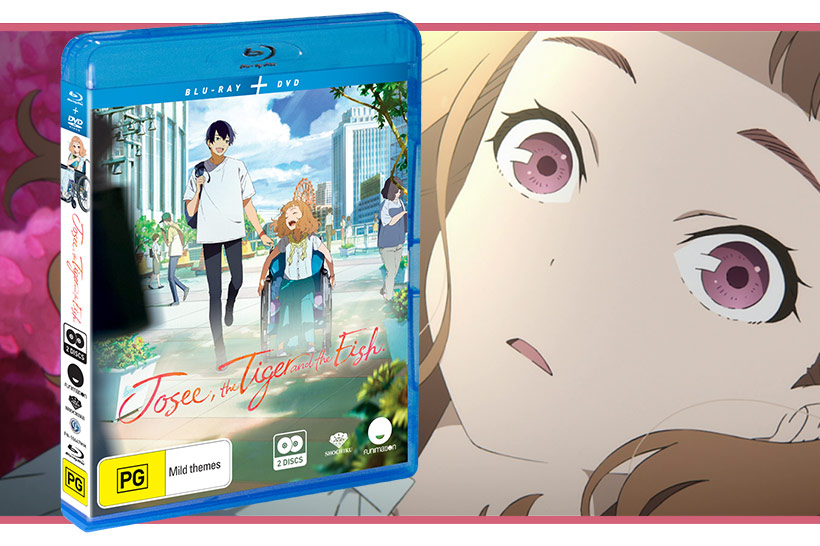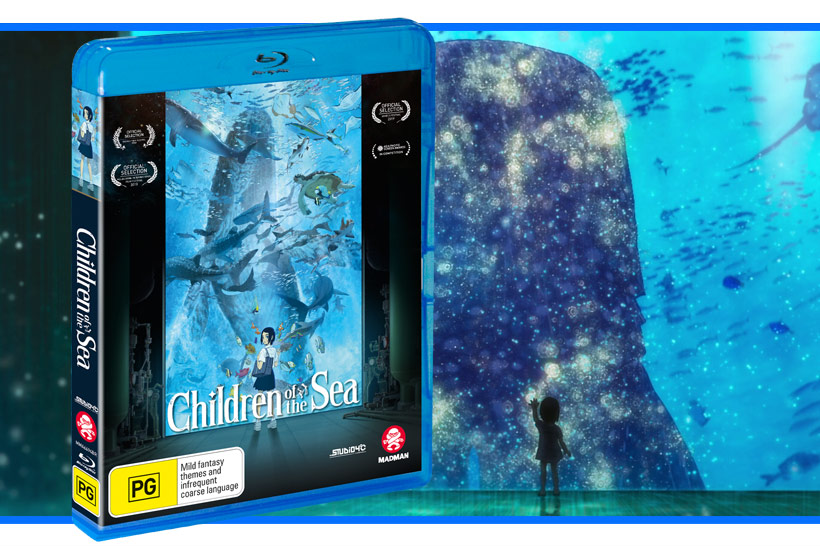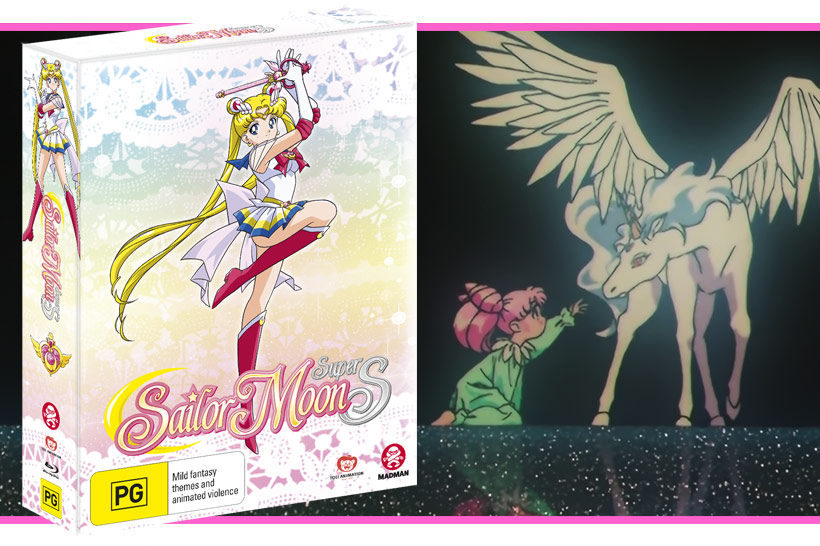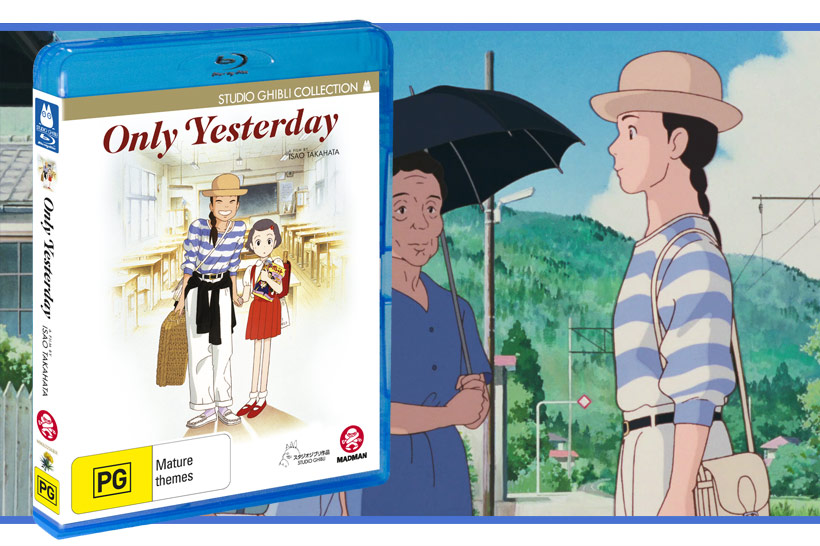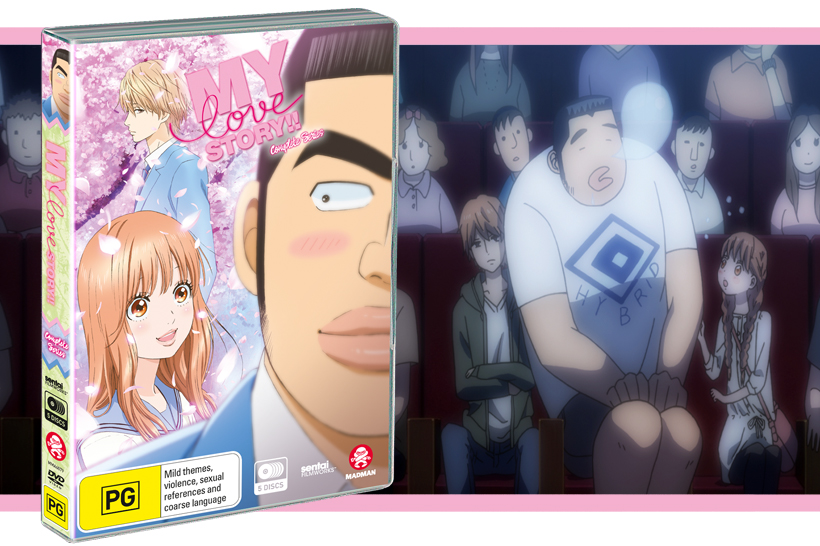Josee, the Tiger and the Fish revisits Seiko Tanabe’s 1984 short story about the relationship between two young people, one of whom is disabled and relies on a wheelchair for mobility, as they challenge each other and societal norms in this coming of age youth drama.
In Josee, the Tiger and the Fish, Tsuneo Suzukawa dreams of travelling to Mexico to complete his post-grad studies in marine biology and leads a furiously determined schedule balancing his life as an undergrad in Osaka, part-time worker to fund his overseas adventure and engage with his love of the ocean as an amateur deep sea diver. Following a chance encounter with Kumiko “Josee” Yamamura after she crashed into him during a rebillious downhill jaunt in her wheelchair, Tsuneo finds himself employed as her carer to give some relief to her grandmother with whom Josee lives.
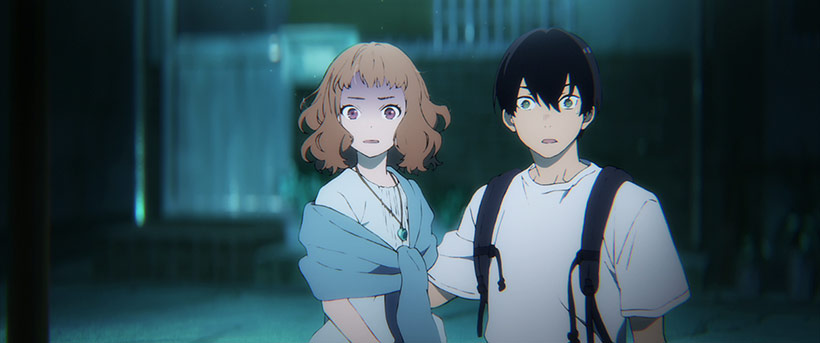
The two find themselves frequently at loggerheads with one another – Josee’s social disconnectedness born from a lifetime of exclusion from societal acceptance personifies itself in pushing away Tsuneo at every opportunity. Tsuneo in turn struggles with the literal and figurative walls placed around Josee and her unpredictable behaviour. The clash proves to be a turning point in both their lives as the two learn to see beyond their respective realities to understand more about themselves and the world around them.
I wasn’t quite sure what to expect from Josee, the Tiger and the Fish – aside from it being a film with some gorgeous cover art and refreshingly featuring one of its protagonists in a wheelchair there wasn’t a whole lot else to work on. The net result however was incredibly engaging with an enormous amount of heart and empathy from director Kotaro Tamura in his theatrical debut.
I loved how the story plays with expectations to explore the relationship between Tsuneo and Josee and their respective worlds. Josee initially comes across as brash and rude to Tsuneo, echoing her general disinterest in engaging with broader society. She’s clearly harbouring an enormous amount of frustration towards structures that in many ways treat her disability as something of a burden and likely a childhood impacted by bullying and isolation amongst her peers, issues compounded by a complex family life.
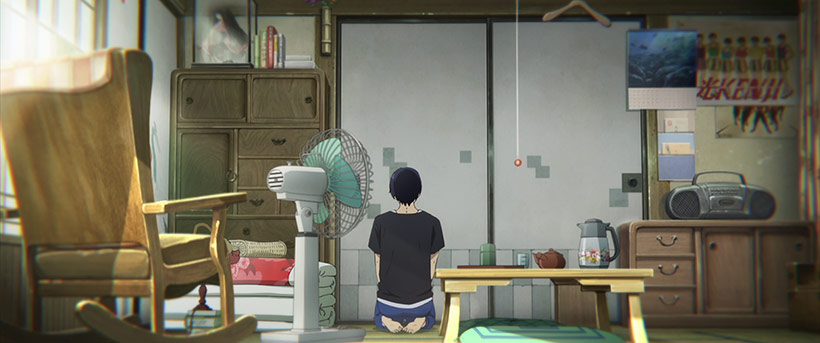
Objectively, Tsuneo doesn’t deserve to bear the brunt of Josee’s cumulative issues and he often finds himself overwhelmed by her negativity and anger. There are multiple times he’s pushed to the point of ceasing his impromptu duties as a paid support carer for Josee until they stumble across a shared love of the ocean and the marine life which inhabit it.
This critical fissure allows for the walls built between both of them to start chipping away, something we see explored both narratively as the story builds and expands, as well as visually as the on-screen gulf between them gradually diminishes by building an understanding of each other’s lives and experiences.
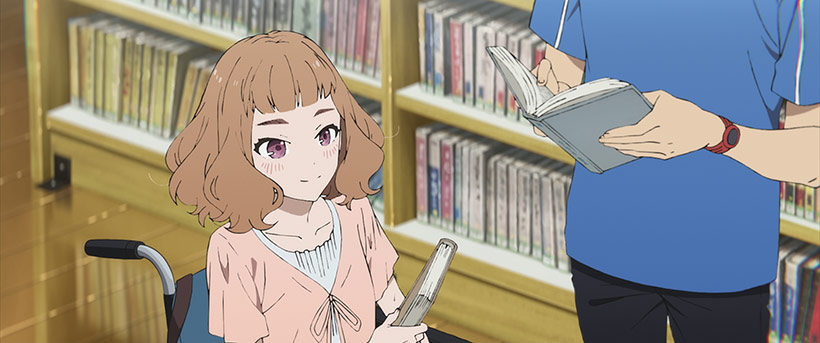
Watching Josee build her confidence and develop her independence is explored in really interesting ways, because these elements also encourage Tsuneo to develop a sense of empathy and understanding for the barrier to Josee’s inclusion in mainstream society. Dealing with intolerance and dismissive people are depicted with refreshing honesty in Josee, the Tiger and the Fish, whether it be explored through her experience as a paraplegic dealing with government bureaucracy or navigating the practicalities of train stations and damaged footpaths in a wheelchair.
While the lens is understandably Japanese, there’s a shared sense of cross-cultural experience in the broader world. This is obvious in the ongoing discussions in Australia on the issues facing disabled people doing their best to navigate societal norms and complex government agencies, something I’ve dealt with over the years as an amputee.
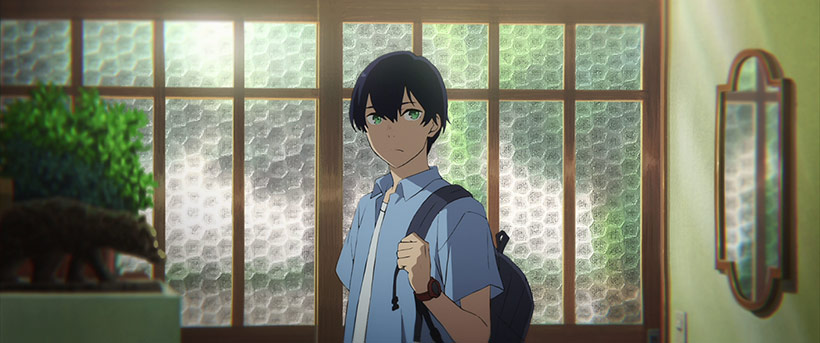
As Tamura points out, the focus for Josee, the Tiger and the Fish isn’t about Josee’s disability and trying to make the viewer feel sorry for her. The way she’s depicted and animated echoes this both in her dialogue and framed across the duration of the film and is a real testament to the production team’s ability to depict her with empathy rather than trying to elicit an empty sense of sympathy. The film excels because it avoids these trappings, which in turn allow for both Tsuneo and Josee to challenge each other. Tsuneo learns there’s more to Josee than at first glance and draws a sense of strength when he needs it in the second half of the film. Josee learns how to interact with society and build human connections, but importantly how to challenge herself and embrace her inner strength and independence.
She also learns that leaning on others who want to help isn’t necessarily a bad thing. Even when the act of doing so, like during the pair’s spur of the moment trip to the beach, is a little unconventional.

Similar to something like Your Name, it knows how to tick the right boxes for a typical youth drama despite the cast being a little older, so if you’re not really into the more grounded rom-com theatrical anime space you may find the whole thing a little by the books. Which is fine I guess.
But what differentiates itself from so much anime is the meaningful way it portrays people with a disability, something I was absolutely enamoured with when In/Spectre went and cast an amputee demon-hunting detective in the main role. In that sense Madman have performed an amazing and welcomed feat by packing in some real diversity into its local anime lineup this year, and I hope we see this continue if bold creative staff in Japan continue to get the opportunity to explore inclusivity in anime.
The local Blu-Ray for Josee, the Tiger and the Fish captures Tamura’s direction and his production team at Bones in incredible detail. Despite the extra work required, the film eschews a lot of 3D CGI shortcuts and instead settles on a massive scale of hand-drawn animation that has been kept lovingly raw in a lot of its linework, relying on some interesting processing of the image to add some texture which accentuates the ultra-wide aspect ratio.
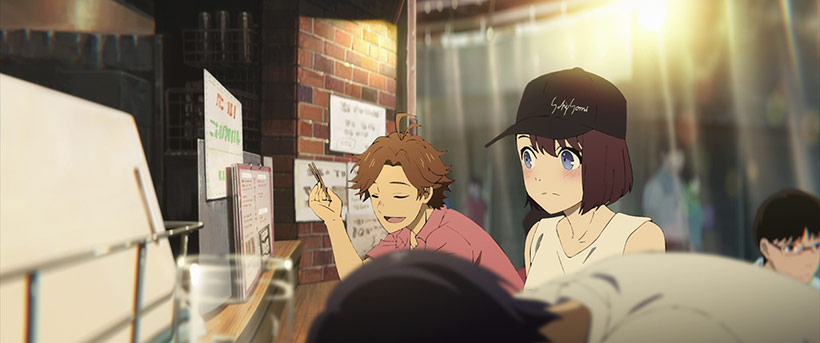
While others who prefer clean, polished penmanship may find this a little offputting, in practice it really felt like they captured the organic feel inherent in traditional cel animation production married with character designs and linework echoing josei and shoujo manga. The gradual colour shifts over the film’s arcs look stunning on Blu-Ray – encoding is tight and the sound mixes are grounded to highlight everyday life in Osaka. I didn’t sample the English dub, but the Japanese performances were excellent.
Beyond the core movie, Madman have jammed a huge amount of extra features with extensive interviews with the production staff (including some great off the cuff discussion on the film), pilot footage and plenty of promo materials. I was honestly quite surprised by the runtime on these, but it really dives deep into how the team navigated putting the movie together and the director’s aims and themes expressed throughout.

Josee, the Tiger and the Fish does all the right things for a theatrical anime release focused on the usual youth drama/comedy elements – the characters are interesting, it’s filled with heart, the art style is gorgeous and it treats Josee’s world view with empathy and dignity. The local release builds on this with a great transfer and a wealth of extras – highly recommended.
A review copy was provided by Madman Entertainment to the author for the purpose of this review.

